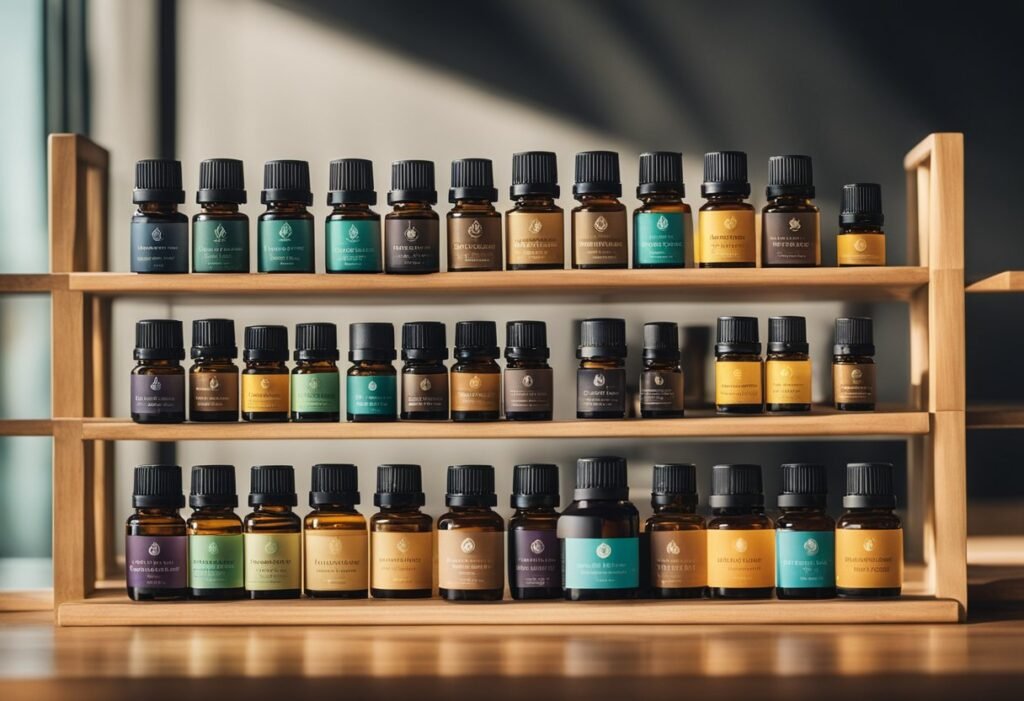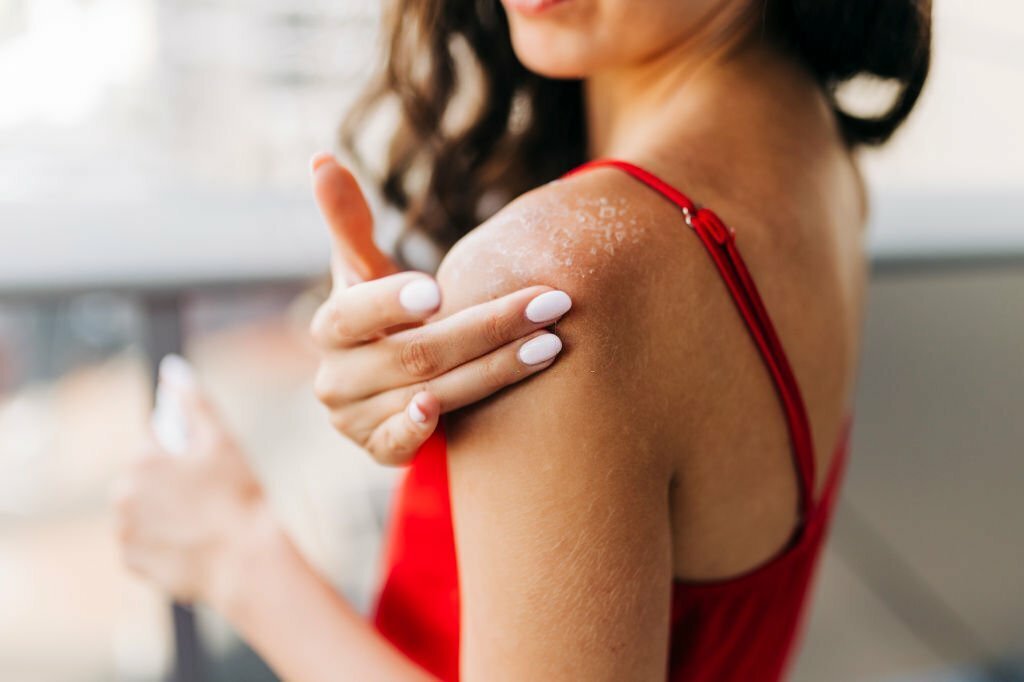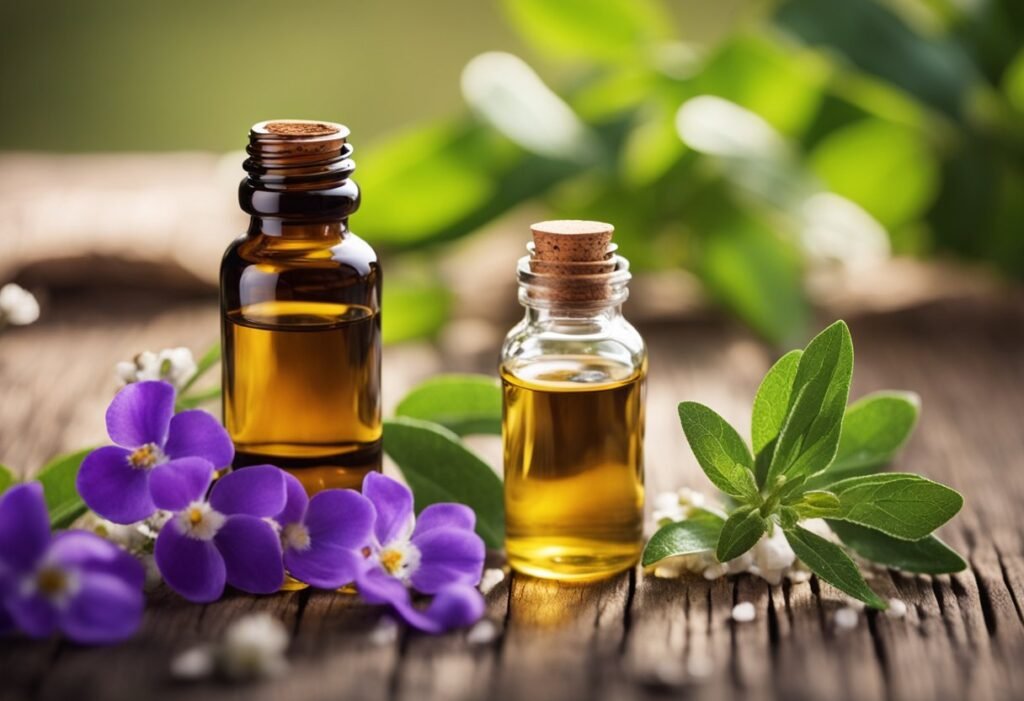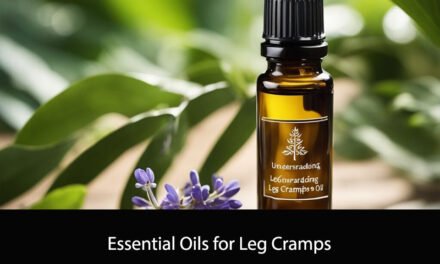Essential oils are becoming increasingly popular in the beauty industry, and for good reason. These natural oils are packed with numerous benefits for the skin, including moisturizing, healing, and rejuvenating properties. One of the latest trends in the world of essential oils is using them for tanning purposes.

If you’re someone who loves to get a sun-kissed glow, you might be interested in learning more about how essential oils can help enhance your tanning experience. By incorporating certain oils into your skincare routine, you can achieve a deeper, more even tan while also nourishing and protecting your skin.
In this article, we will explore the benefits of using essential oils for tanning, as well as some of the best oils to use to achieve your desired results. Whether you’re a seasoned tanner or just starting out, there’s something for everyone when it comes to incorporating essential oils into your tanning routine.
Understanding Essential Oils
What Are Essential Oils
Essential oils are highly concentrated liquids extracted from various parts of plants, such as leaves, flowers, stems, and roots. They contain the natural essence of the plant and are used for their therapeutic properties. Essential oils are often used in aromatherapy, massage, and skincare products.
The extraction process of essential oils can vary depending on the plant used, but it typically involves steam distillation or cold pressing. The resulting oil is highly concentrated and potent, so it is important to use them properly and in appropriate amounts.
Benefits of Essential Oils
Essential oils have a wide range of benefits, including:
- Promoting relaxation and reducing stress
- Improving skin health and reducing inflammation
- Boosting the immune system
- Providing natural fragrance to products
When it comes to tanning, some essential oils can be used to enhance the process and provide additional benefits. For example, coconut oil, which is technically not an essential oil but a carrier oil, can be used to moisturize the skin and enhance the absorption of other oils. Lavender essential oil can soothe the skin and reduce inflammation, while carrot seed oil can provide natural sun protection.
It is important to note that essential oils should not be used as a substitute for sunscreen. While some oils may provide natural sun protection, they do not offer the same level of protection as a proper sunscreen. Additionally, some essential oils can increase the risk of sunburn or skin damage, so it is important to use them properly and in appropriate amounts.
Essential Oils for Tanning

Tanning is a popular way to get a sun-kissed look, but it can also cause damage to the skin. Essential oils can be a great addition to your tanning routine, providing natural protection and nourishment to the skin.
How Essential Oils Aid in Tanning
Essential oils are concentrated plant extracts that contain a variety of beneficial compounds. Some essential oils have natural SPF properties, which can help protect the skin from harmful UV rays. Others contain antioxidants that can help prevent damage from free radicals and promote skin health.
Essential oils can also help to moisturize and nourish the skin, which is important for maintaining a healthy, glowing complexion. By using essential oils during tanning, you can help to protect your skin from damage and keep it looking its best.
Top Essential Oils for Tanning
Here are some of the best essential oils to use for tanning:
- Carrot Seed Oil: This oil has a natural SPF of around 30-40 and is rich in antioxidants that can help protect the skin from damage.
- Coconut Oil: Coconut oil is a great moisturizer that can help keep the skin soft and supple during tanning.
- Jojoba Oil: Jojoba oil is similar in composition to the natural oils produced by the skin, making it an excellent moisturizer. It also contains natural SPF properties.
- Lavender Oil: Lavender oil has a soothing effect on the skin and can help reduce inflammation and redness.
- Raspberry Seed Oil: This oil has a natural SPF of around 30-50 and is rich in antioxidants that can help protect the skin from damage.
When using essential oils for tanning, it’s important to dilute them with a carrier oil to avoid irritation. You should also avoid using essential oils if you have sensitive skin or are prone to allergies.
In conclusion, essential oils can be a great addition to your tanning routine, providing natural protection and nourishment to the skin. By using the right essential oils, you can help to protect your skin from damage and keep it looking healthy and radiant.
Using Essential Oils for Tanning

When it comes to achieving a natural-looking tan, many people turn to essential oils as a safe and effective alternative to traditional tanning methods. Here, we will discuss the preparation process and application method for using essential oils for tanning.
Preparation Process
Before applying essential oils for tanning, it is important to properly prepare your skin. Start by exfoliating your skin to remove any dead skin cells and create a smooth surface for the oils to absorb into. You can use a gentle exfoliating scrub or a dry brush to achieve this.
Next, moisturize your skin with a light lotion or oil to ensure that it is hydrated and ready to absorb the essential oils. This step is crucial as dry skin can cause the oils to sit on the surface of your skin, leading to a streaky or uneven tan.
Finally, choose the essential oils that you want to use for your tanning process. Some popular options include carrot seed oil, coconut oil, and raspberry seed oil. Make sure to choose high-quality, pure oils to ensure the best results.
Application Method
To apply essential oils for tanning, start by mixing a few drops of your chosen oil with a carrier oil such as coconut oil or olive oil. This will help to dilute the essential oil and make it easier to apply evenly.
Next, apply the oil mixture to your skin in a circular motion, making sure to cover all areas evenly. For best results, start with a small amount of oil and add more as needed.
Allow the oil to absorb into your skin for at least 30 minutes before getting dressed or going outside. It is important to note that essential oils do not provide the same level of protection from the sun as traditional sunscreen, so it is recommended to wear a hat or cover up when spending extended periods of time in the sun.
In conclusion, using essential oils for tanning can be a safe and effective alternative to traditional tanning methods. By properly preparing your skin and applying the oils evenly, you can achieve a natural-looking, streak-free tan.
Safety Precautions

When using essential oils for tanning, it is important to take certain safety precautions to avoid any possible side effects. Here are some important things to keep in mind:
Possible Side Effects
Although essential oils are generally safe to use, some people may experience side effects. These can include:
- Skin irritation or rash
- Allergic reactions
- Photosensitivity (increased sensitivity to sunlight)
- Headaches or dizziness
- Nausea or vomiting
If you experience any of these symptoms, stop using the essential oil immediately and seek medical attention if necessary.
When to Avoid Essential Oils
There are certain situations when it is best to avoid using essential oils for tanning. These include:
- During pregnancy or breastfeeding
- If you have sensitive skin or a skin condition such as eczema or psoriasis
- If you are taking medication that may interact with essential oils
- If you have a history of allergies or allergic reactions
It is always a good idea to do a patch test before using any new essential oil. Apply a small amount to a small area of skin and wait 24 hours to see if any irritation or allergic reactions occur.
By following these safety precautions, you can enjoy the benefits of essential oils for tanning without any negative side effects.
Conclusion
In conclusion, essential oils can be a valuable addition to your tanning routine. They can help to moisturize and protect your skin while also enhancing your tan. However, it is important to use them properly and in moderation to avoid any adverse effects.
When choosing essential oils for tanning, look for ones that are known for their skin-nourishing properties, such as lavender, chamomile, and rosehip. Dilute them properly in a carrier oil before applying them to your skin and always do a patch test first to ensure that you are not allergic or sensitive to the oil.
Remember that essential oils are not a substitute for sunscreen and should not be relied upon solely for sun protection. Always wear sunscreen with a high SPF and limit your exposure to the sun during peak hours.
With proper use and care, essential oils can be a great addition to your tanning routine, helping you achieve a beautiful, healthy glow.
Frequently Asked Questions

What are some natural oils that can be used for tanning?
There are several natural oils that can be used for tanning, including coconut oil, olive oil, and avocado oil. These oils are rich in vitamins and antioxidants that can help to moisturize and protect the skin while also promoting a healthy, natural-looking tan.
Is it safe to use essential oils for tanning?
While essential oils can offer many benefits when used properly, it is important to use caution when using them for tanning. Some essential oils can cause skin irritation or sensitivity, and others may increase the risk of sunburn or skin damage. It is always best to consult with a healthcare professional before using essential oils for tanning.
Can tanning oil be made at home with essential oils?
Yes, tanning oil can be made at home using essential oils. However, it is important to use caution and only use essential oils that are safe for tanning. Some good options include coconut oil, carrot seed oil, and raspberry seed oil. Be sure to follow a reliable recipe and test the oil on a small patch of skin before using it all over.
What are the benefits of using organic tanning oil?
Organic tanning oil can offer many benefits over traditional tanning oils. Organic oils are free from synthetic chemicals and preservatives, which can be harmful to both your skin and the environment. They are also often rich in vitamins and antioxidants that can help to nourish and protect the skin.
What is the difference between tanning oils and sunscreen?
Tanning oils are designed to help you achieve a deeper, more natural-looking tan, while sunscreen is designed to protect your skin from the harmful effects of UV radiation. While some tanning oils may contain SPF, they are not a substitute for sunscreen and should not be relied on as your sole form of protection.
Are there any oils that attract UV rays and should be avoided for tanning?
There are some oils that may attract UV rays and should be avoided for tanning, including bergamot oil, lemon oil, and lime oil. These oils can increase the risk of sunburn and skin damage, so it is best to avoid them when tanning.





